Munchkin Cat is a one-of-a-kind breed that captures hearts with their short legs, playful energy, and affectionate personalities. Known as one of the most adorable small cat breeds, they are curious, sociable, and full of life. However, their unique traits also mean they have specific care requirements that every pet owner should know.
Caring for a Munchkin cat goes beyond simply providing food and shelter. Their distinct physique, lively behavior, and health considerations demand a tailored approach. From selecting the right food to regular grooming and understanding their health needs, providing the right care ensures your Munchkin cat lives a long, happy, and fulfilling life.
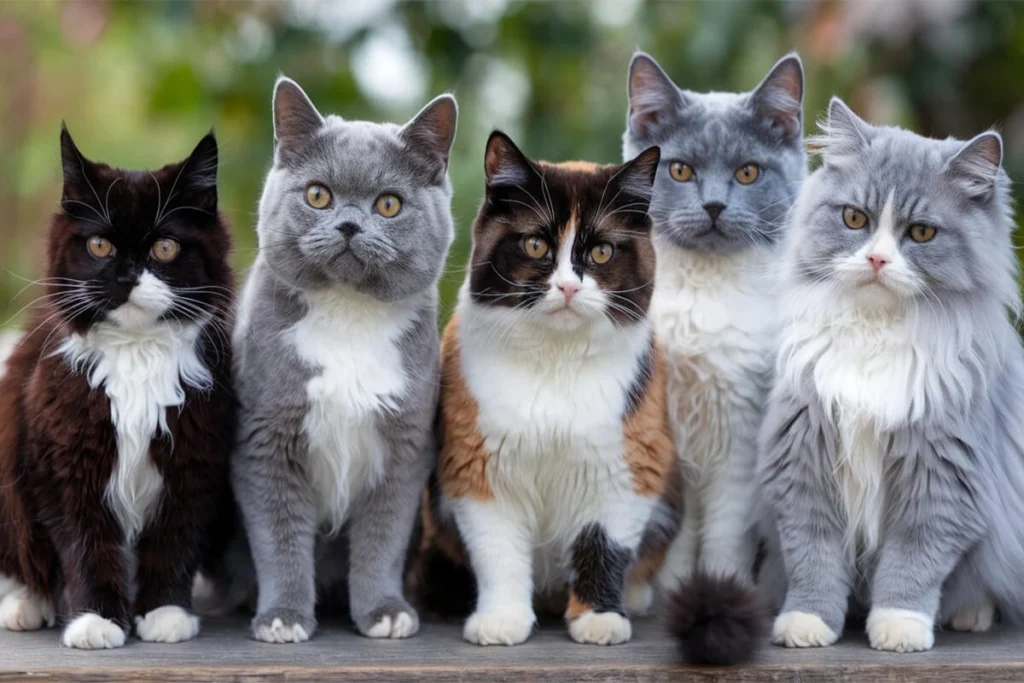
In this guide, we’ll explore everything you need to know about Munchkin cat care. You’ll discover tips for grooming, advice on choosing the best diet, and ways to keep them active and mentally stimulated. We’ll also discuss common health issues and how to create a safe and enriching environment for your short-legged feline friend.
Whether you’re a first-time Munchkin cat owner or looking to improve how you care for your beloved pet, this guide will give you all the tools and knowledge you need. Let’s dive into the essentials of keeping your Munchkin cat happy, healthy, and thriving!
Understanding the Unique Traits of Munchkin cats
Munchkin cat Breed Overview
The Munchkin cat breed is famous for its distinctive short legs, which result from a genetic mutation. Despite their small stature, these cats are incredibly agile and capable of running and jumping just like any other breed. Their compact build adds to their charm, making them one of the most sought-after small cat breeds worldwide. Munchkin cats come in a variety of coat colors, patterns, and lengths, ranging from sleek short-haired varieties to fluffy long-haired ones. This diversity allows each Munchkin cat to have a unique appearance that cat enthusiasts adore.
Their history is relatively recent, as the breed was officially recognized in the early 1990s. However, their affectionate personalities and quirky appearance quickly earned them a dedicated fanbase. They are often described as “dachshunds of the cat world,” due to their resemblance to the short-legged dog breed. While their short legs make them stand out, they don’t hinder their ability to live a full and active life. Understanding these unique traits helps owners provide the care and environment these adorable cats need.
Munchkin cat Behavior
Munchkin cats are known for their playful, outgoing, and curious personalities. They are highly sociable cats who enjoy spending time with their human companions and other pets. Despite their short legs, Munchkin cats are energetic and love to explore their surroundings. Their curious nature often leads them to investigate every nook and cranny of the home, making them a joy to watch.
These cats are incredibly affectionate and bond closely with their families. They often follow their owners around the house, seeking attention and cuddles. Munchkin cats are also known for their adaptability, making them suitable for various living situations, including apartments or larger homes. They tend to get along well with children and other pets, which makes them a great choice for families.
Additionally, Munchkin cats are intelligent and can be trained to perform simple tricks or use puzzle feeders for mental stimulation. Providing toys, scratching posts, and interactive play sessions is essential to keeping them engaged. Their playful and social nature makes them a constant source of joy and entertainment for their owners.
Munchkin cat Lifespan
The average lifespan of a Munchkin cat ranges from 12 to 15 years, although some individuals may live even longer with proper care. Factors such as diet, exercise, and regular veterinary check-ups play a crucial role in determining their lifespan. Like all cats, Munchkins thrive in environments where their physical and emotional needs are met.
While Munchkin cats are generally healthy, their short legs can sometimes make them prone to specific health issues. One of the most common concerns is lordosis, a condition where the spine curves downward, potentially affecting their mobility. However, not all Munchkin cats develop this condition, and responsible breeding practices can minimize the risk.
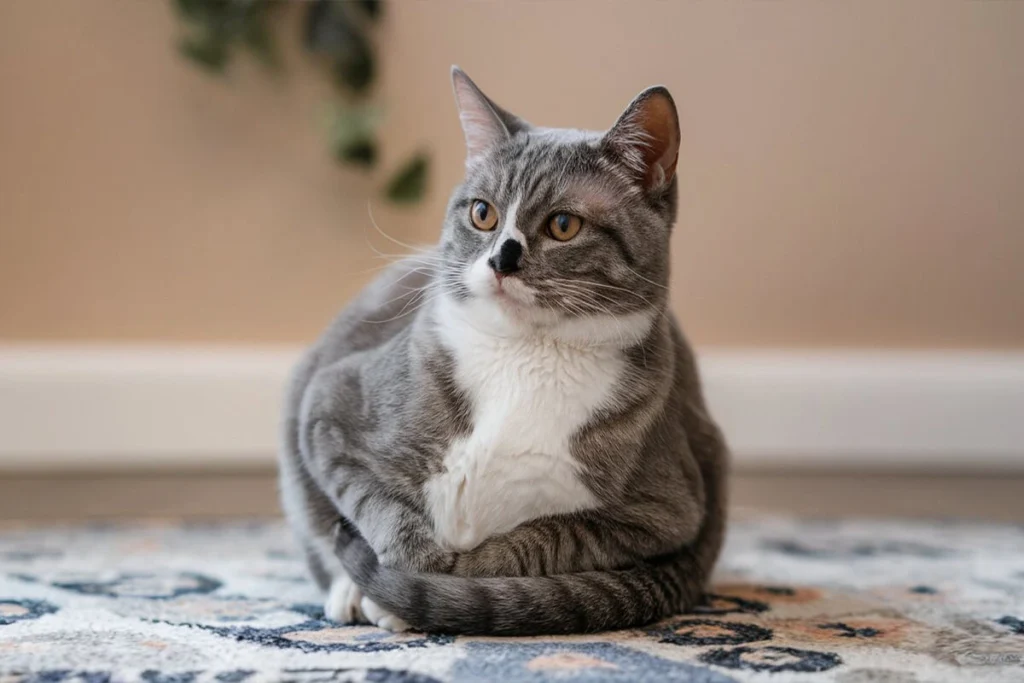
To ensure a long and healthy life, it’s important to provide them with a nutritious diet, regular grooming, and plenty of opportunities for exercise and mental stimulation. Routine visits to the veterinarian are also essential for early detection and prevention of potential health issues. With the right care and attention, Munchkin cats can enjoy a happy and fulfilling life, delighting their owners with their unique charm and personality.
Nutrition Tips for Healthy and Happy Munchkin cat
Best Food for the Munchkin cat
Feeding your Munchkin cat a well-balanced and nutritious diet is essential to their overall health and well-being. High-quality cat food with a focus on protein should be the cornerstone of their diet. Look for brands that list real meat, such as chicken, turkey, or fish, as the primary ingredient. Avoid foods with excessive fillers, artificial additives, or by-products, as these can negatively affect your cat’s health over time.
Consider your Munchkin cat’s specific needs when choosing their food. For example, kittens require a diet rich in calories, protein, and fat to support their rapid growth, while adult cats may need lower-calorie options to maintain a healthy weight. If your Munchkin cat is prone to joint or mobility issues, you might explore specialized diets that include ingredients like glucosamine and omega-3 fatty acids to promote joint health.
Wet food can be an excellent addition to their diet, as it provides extra hydration and is often more palatable for picky eaters. Feeding a mix of wet and dry food can help strike the perfect balance, ensuring they receive the nutrition they need without overindulging.
Cat Health Supplements
Supplements can play a vital role in supporting your Munchkin cat’s health, especially if they have specific needs or health concerns. For cats prone to joint issues, supplements containing glucosamine and chondroitin can help maintain cartilage health and improve mobility. Omega-3 fatty acids, often found in fish oil, are another excellent supplement for promoting a shiny coat, reducing inflammation, and supporting overall joint and heart health.
Probiotics are another popular choice for maintaining a healthy gut and improving digestion, particularly if your cat has a sensitive stomach. Taurine, an essential amino acid for cats, is crucial for heart and eye health and is often included in high-quality cat food. However, some owners choose to supplement it for added benefits.
Always consult your veterinarian before adding any supplements to your Munchkin cat’s diet. They can recommend the right products and dosage based on your cat’s age, weight, and health condition. Proper use of supplements can enhance your cat’s quality of life and help address potential health issues before they become serious.
Hydration and Feeding Schedule
Keeping your munchkin cat hydrated is just as important as providing them with nutritious food. Cats often don’t drink enough water, so incorporating moisture-rich wet food into their diet can help ensure they stay properly hydrated. You can also encourage them to drink more by providing fresh water in multiple locations around your home or using a cat water fountain, which many cats find appealing.
Establishing a consistent feeding schedule is essential for maintaining your cat’s overall health and preventing overeating. Most adult Munchkin cats do well with two meals a day, while kittens may require three to four smaller meals to support their growth. Measure their portions carefully to avoid overfeeding, as Munchkin cats, like any breed, can become overweight if not monitored closely.
Pay attention to your cat’s body condition and adjust their food portions accordingly. Regularly check with your veterinarian to ensure you’re meeting their dietary needs at every stage of life. By providing the right balance of hydration and nutrition on a consistent schedule, you’ll help your Munchkin cat stay healthy and happy for years to come.
Grooming Essentials for Munchkin cats
Grooming Tips for Munchkin Cats
Regular grooming is an essential part of caring for your Munchkin cat. Depending on whether they have a short or long coat, their grooming needs may vary. Short-haired Munchkins typically require brushing once a week to remove loose hair and prevent shedding, while long-haired varieties may need brushing two to three times a week to prevent mats and tangles. Use a gentle brush suitable for your cat’s coat type to ensure a comfortable grooming experience.
Bathing is rarely necessary for the munchkin cat unless they get into something messy. When bathing is required, use a cat-specific shampoo to avoid drying out their skin. Pay special attention to cleaning their ears and trimming their nails regularly to keep them healthy and comfortable. Teeth brushing is another vital grooming step that helps prevent dental issues, so aim to brush their teeth a few times a week using a cat-safe toothpaste.
Grooming sessions are also an excellent opportunity to check for signs of skin issues, lumps, or parasites. By incorporating grooming into your routine, you not only keep your Munchkin cat looking great but also ensure their overall well-being.
Essential Cat Grooming Tools
Having the right grooming tools makes the process easier and more enjoyable for both you and your Munchkin cat. Here are some must-have tools:
- Brushes and Combs: A slicker brush or a comb with fine teeth is ideal for removing loose fur and preventing tangles. Long-haired Munchkins may benefit from a de-shedding tool to manage their thicker coats.
- Nail Clippers: Invest in high-quality cat nail clippers or a nail grinder to keep your cat’s claws trimmed and healthy.
- Cat-Specific Shampoo: Use a gentle, hypoallergenic shampoo designed for cats to ensure their skin stays moisturized and irritation-free during baths.
- Toothbrush and Toothpaste: A small, soft-bristled toothbrush and cat-safe toothpaste are essential for maintaining your Munchkin cat’s oral health.
By equipping yourself with the right tools, you can create a stress-free grooming experience that keeps your Munchkin cat healthy and happy.
Litter Box Care
Maintaining a clean litter box is crucial for your Munchkin cat’s hygiene and overall health. Their short legs may make it challenging to navigate high-sided litter boxes, so opt for a box with low sides to ensure easy access. Choose a high-quality, clumping litter that absorbs odors and is gentle on your cat’s paws.
Scoop the litter box daily to remove waste and prevent unpleasant smells.
Keeping Your Munchkin cat Active and Engaged
Cat Toys and Enrichment
Munchkin cats are highly playful and curious, making toys and enrichment activities essential for their mental and physical well-being. Their short legs don’t stop them from chasing, pouncing, and playing with the same enthusiasm as any other breed. Providing a variety of toys helps keep them engaged and prevents boredom.
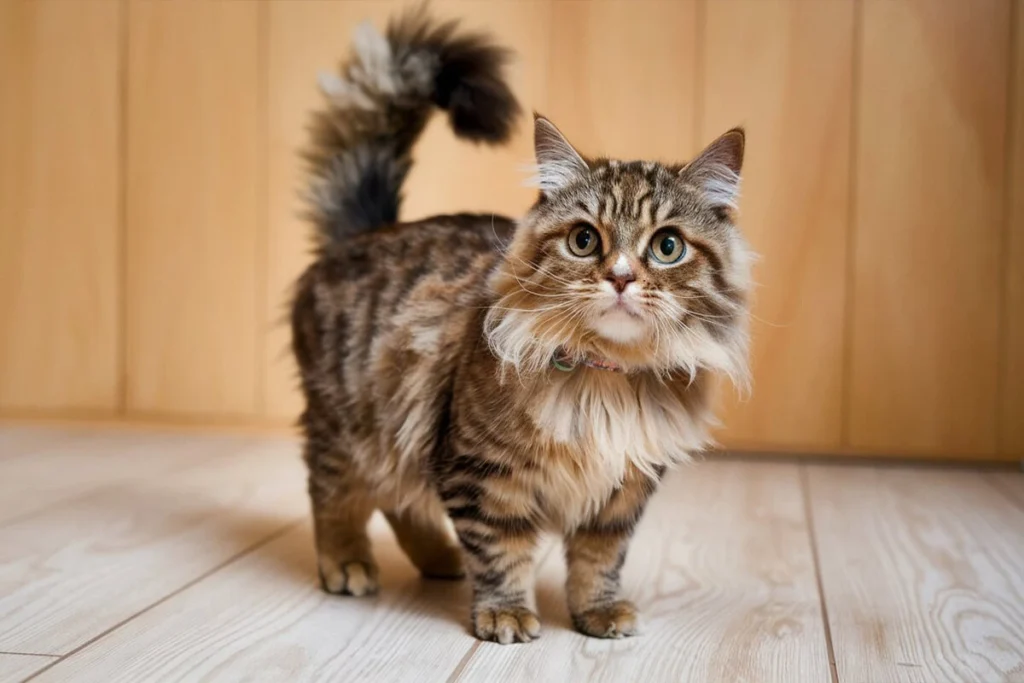
- Interactive Toys: Puzzle feeders and toys that dispense treats can keep your Munchkin cat entertained for hours. These toys challenge their intelligence and encourage problem-solving.
- Feather Wands and Laser Pointers: These toys are perfect for stimulating your cat’s hunting instincts. They provide an opportunity for physical exercise while fostering a bond during playtime with you.
- Cat Trees and Scratching Posts: Despite their short stature, Munchkin cats enjoy climbing and exploring. Cat trees with low platforms or ramps are ideal for their unique build. Scratching posts are good for cats. They help keep their claws healthy and stop them from damaging furniture.
- Soft Plush Toys: Lightweight plush toys that they can carry or bat around the house are also a favorite. Adding catnip to some toys can make them even more appealing.
Regularly rotating their toys and introducing new ones keeps their environment fresh and stimulating, ensuring they remain happy and active.
Socialization and Training
Munchkin cats are naturally friendly and social, but proper socialization and training from an early age ensure they grow into well-rounded pets. Socialization helps them adapt to various environments, people, and other pets, while training enhances their behavior and strengthens the bond you share.
- Early Socialization: Expose your Munchkin kitten to different sounds, sights, and experiences during their first few weeks of life. This helps them build confidence and reduces the likelihood of fear or anxiety in new situations.
- Positive Reinforcement Training: Use treats, praise, or playtime as rewards to encourage desired behaviors. Munchkin cats are intelligent and can learn simple commands, such as sitting, staying, or even using a specific area for scratching.
- Interaction with Other Pets: Gradually introduce your Munchkin cat to other pets in your household. Supervised play sessions and slow introductions help build trust and prevent conflicts.
- Handling Practice: Gently handle your Munchkin cat to get them accustomed to being touched, especially their paws, ears, and mouth. This makes grooming and vet visits much easier in the future.
By investing time in socialization and training, you’ll have a confident, well-behaved, and happy companion who thrives in your home.
Health and Wellness for Your Munchkin cat
Common Health Issues in Munchkin Cats
Munchkin cats are generally healthy, but their unique physical traits can predispose them to certain health challenges. Being aware of these potential issues helps owners take proactive measures to ensure their well-being.
- Lordosis: This condition involves the spinal muscles being underdeveloped, causing the spine to dip. While mild cases might not cause issues, severe instances can affect mobility and organ function. Regular vet check-ups are key to monitoring spinal health.
- Joint Problems: Although Munchkin cats are agile, their short legs may make them more susceptible to joint issues, including arthritis. Providing joint supplements and ensuring they maintain a healthy weight can minimize strain on their joints.
- Obesity: Due to their playful nature, Munchkin cats might not seem prone to weight gain. However, overeating or a lack of exercise can lead to obesity, which exacerbates other health conditions like diabetes or joint pain. A balanced diet and regular playtime are essential for weight management.
- Respiratory Issues: Some Munchkin cats may develop breathing difficulties, especially if they inherit facial features similar to brachycephalic breeds. Monitoring their activity levels and ensuring proper ventilation in their environment helps mitigate risks.
By understanding these health concerns, you can work closely with your veterinarian to keep your Munchkin cat healthy and active throughout their life.
Regular Veterinarian Visits
Routine veterinarian visits are a cornerstone of preventative care for Munchkin cats. Scheduling a check-up at least once or twice a year allows for early detection of potential health issues and ensures your cat remains up-to-date on vaccinations.
During these visits, your vet will perform a thorough physical examination, including checking their weight, teeth, and overall condition. Specific tests, such as X-rays or blood panels, might be recommended to monitor their joints and internal health.
For Munchkin kittens, initial vet visits will focus on vaccinations, deworming, and spaying or neutering. Regular dental cleanings can also prevent periodontal disease, which is common in cats but often overlooked. Be sure to discuss dietary needs and supplements with your vet to ensure your cat receives optimal nutrition for their unique requirements.
Creating a schedule for veterinarian visits and adhering to it helps your Munchkin cat thrive while giving you peace of mind that they are receiving the best care possible.
Indoor vs. Outdoor Cats
Munchkin cats are best suited to an indoor lifestyle due to their short stature and unique physical build. While they are capable of running and climbing, their small legs may make them more vulnerable to predators and environmental hazards, such as traffic or rough terrain.
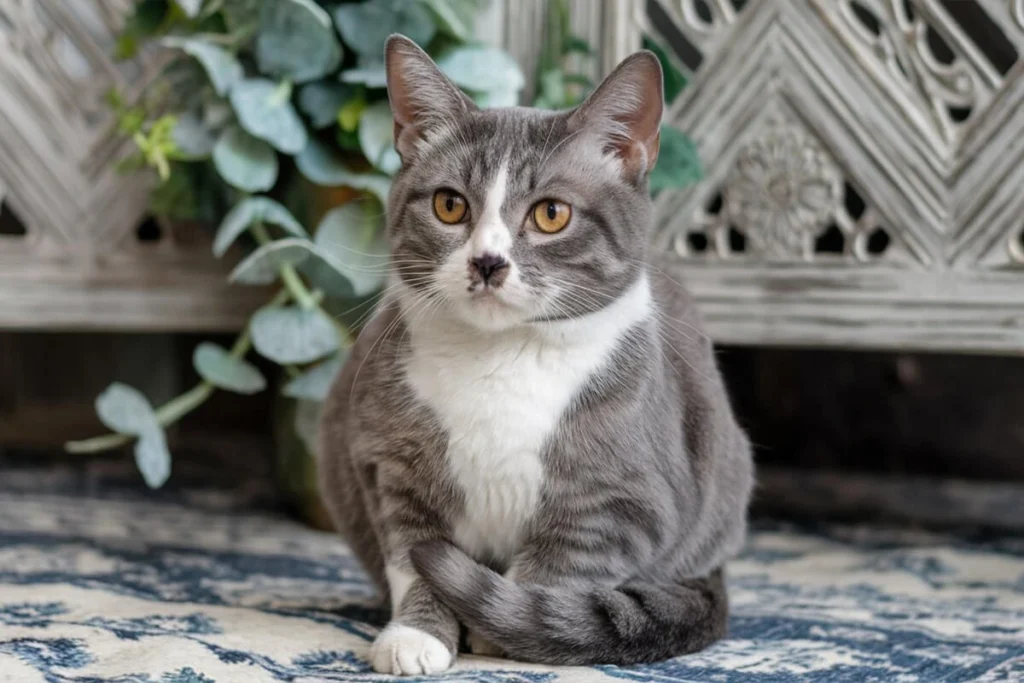
Indoor cats tend to live longer lives as they are protected from diseases, parasites, and injuries commonly associated with outdoor life. However, keeping them indoors means you’ll need to provide plenty of enrichment, such as interactive toys, climbing structures, and play sessions, to keep them mentally and physically stimulated.
If you decide to give your Munchkin cat access to the outdoors, consider supervised outings using a harness or a secure outdoor enclosure. This allows them to explore safely without exposing them to unnecessary risks. Balancing safety with enrichment ensures your Munchkin cat remains happy and healthy, no matter their living environment.
You can Discover a lot about Cats Breeds on PawPits Official website
Conclusion
Caring for a Munchkin cat goes beyond meeting their basic needs; it’s about creating an environment where they can thrive both physically and emotionally. By understanding their unique traits and tailoring their care to suit their specific requirements, you can nurture a deep and rewarding relationship with your feline friend. From their playful nature to their endearing personality, Munchkins have so much to offer to those willing to embrace their quirks and charms.
A Munchkin cat’s happiness is closely tied to their overall health and well-being. Providing proper nutrition, engaging them with stimulating activities, and staying vigilant about their health concerns are just some of the ways you can ensure a fulfilling life for them. Additionally, regular grooming and a clean, safe living environment contribute to their comfort and happiness.
A Commitment to Health and Happiness
Munchkin cats rely on their owners to be proactive about their health. Annual veterinary visits are essential for catching potential issues early and maintaining their physical health. With their susceptibility to joint and spinal issues, being mindful of their weight, activity levels, and any changes in behavior can make a significant difference in their quality of life. Choosing the right food, adding beneficial supplements, and encouraging exercise are all vital components of their care.
Creating an enriching indoor environment is particularly important for this breed. Indoor living protects them from hazards while allowing you to design a safe and stimulating space that meets their need for exploration and play. Whether through interactive toys, climbing structures, or dedicated time for socialization, enriching your Munchkin’s life fosters their emotional and mental health.
Encouraging a Joyful, Playful Life with a Munchkin cat
Owning a Munchkin cat means sharing your home with a creature full of energy, curiosity, and affection. While their short legs might be their most distinctive feature, their loving personality and playful nature are what truly make them special. Munchkin cats form strong bonds with their humans, and they thrive on companionship and affection.
In return for your care and attention, your Munchkin will bring endless joy and entertainment to your life. Their curious antics, interactive play, and gentle companionship make them a wonderful addition to any household. By understanding their unique needs and making the effort to provide the best possible care, you’ll build a strong, lasting connection with your Munchkin cat.
Ultimately, owning a Munchkin cat is an opportunity to embrace their distinctive traits and create a nurturing environment where they can flourish. Whether you’re a first-time cat owner or an experienced one, the effort you put into their care will be rewarded with the unconditional love and joy that only a Munchkin cat can provide.
Discover the Munchkin Cat Health Problems & Tips for a Healthy & Happy Cat.
Check Our Latest Articles Concerning Cats and breeds From HERE!
Find The Best Stuff for your Pets on PetMD
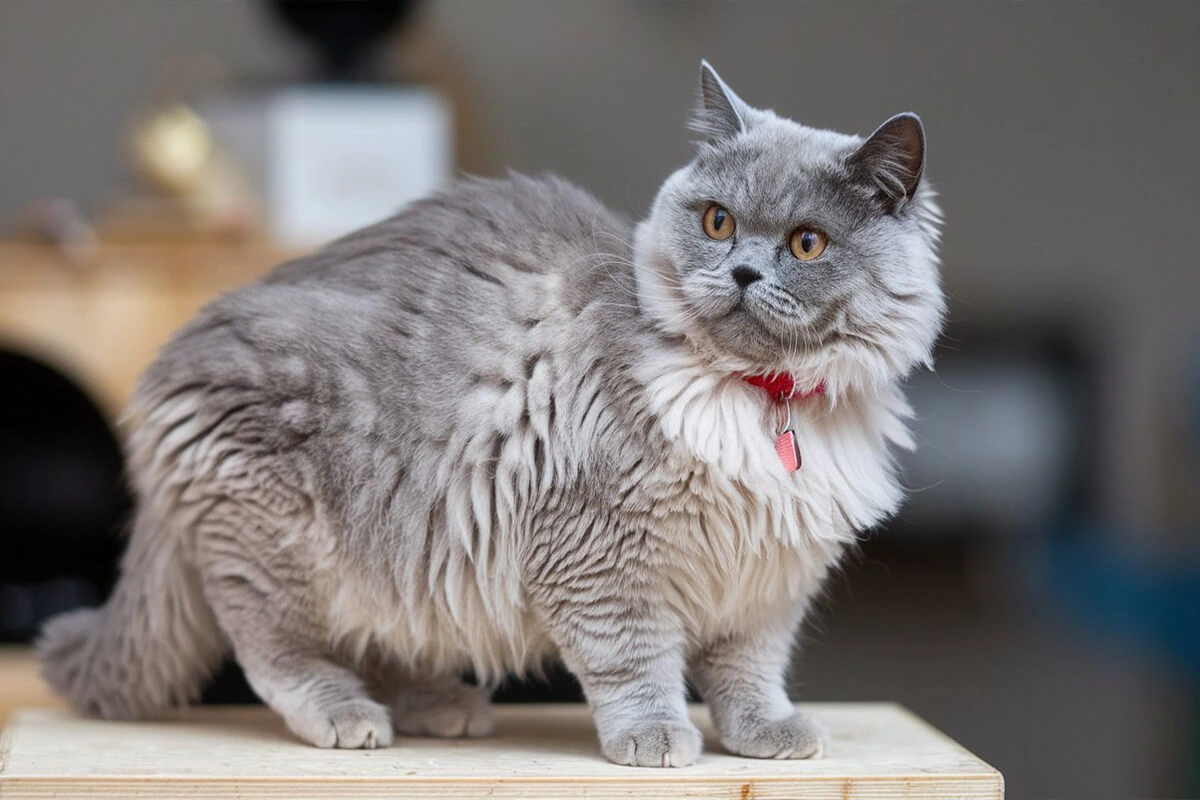
1 thought on “How to Care for Your Munchkin cat : Expert Tips for Happy Felines”
Comments are closed.